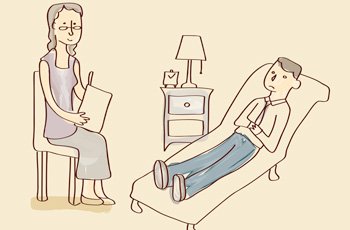Psycho analysis training
psychoanalytic theories of the mind, of mental dynamics and of psychological development, as well as practical things, such as how best to facilitate and conduct sessions, which are related to those theoretical ideas; but as the seminal psychoanalyst Wilfred Bion once wrote (paraphrased), those theories can be a useful prop in the first or second session of an analysis, but after that you are more or less on your own, in uncharted territory.

Bion differentiated the class of learning that is ‘experiential’ or as he put it, ‘learning from experience’, rather than that taught academically. What he was trying to remind us of is that ‘knowledge’ and most types of ‘learning’ are used defensively, to protect us from the experience of ‘not knowing’, which can be frightening, painful, and threatening to our self-esteem. However, using prior knowledge as a defence destroys our ability to experience and make use of anything new.
He advocated rather that we cultivate a state of mind that recognised the potentiality that the patient who walks into the room today is not the same as the one we met with yesterday. He called this ‘the suspension of memory and desire’.
We must eschew the comfort of remembering the past sessions - memory being the past tense of desire - and give up our expectations of a ‘cure’ in the future, in order to allow space for the present to be ‘itself’. Our memory will confine the patient to being the same person we already know (knowledge as defence), and our desire will constrain the present tense of the analytic couple to our wishes and expectations, which will rarely represent the potential or the ‘truth’ of the psychological territory which is the consulting room.
[image] (http://www.disorders.org/counseling-therapy-techiques/psychoanalysis/)
it will be better if you add french eor arabic translation, thanks @protomar
Usually i do, its jst that im a student and i had a lot to do and i got lazy, next time i won't forget! Thank you for the feed back bro